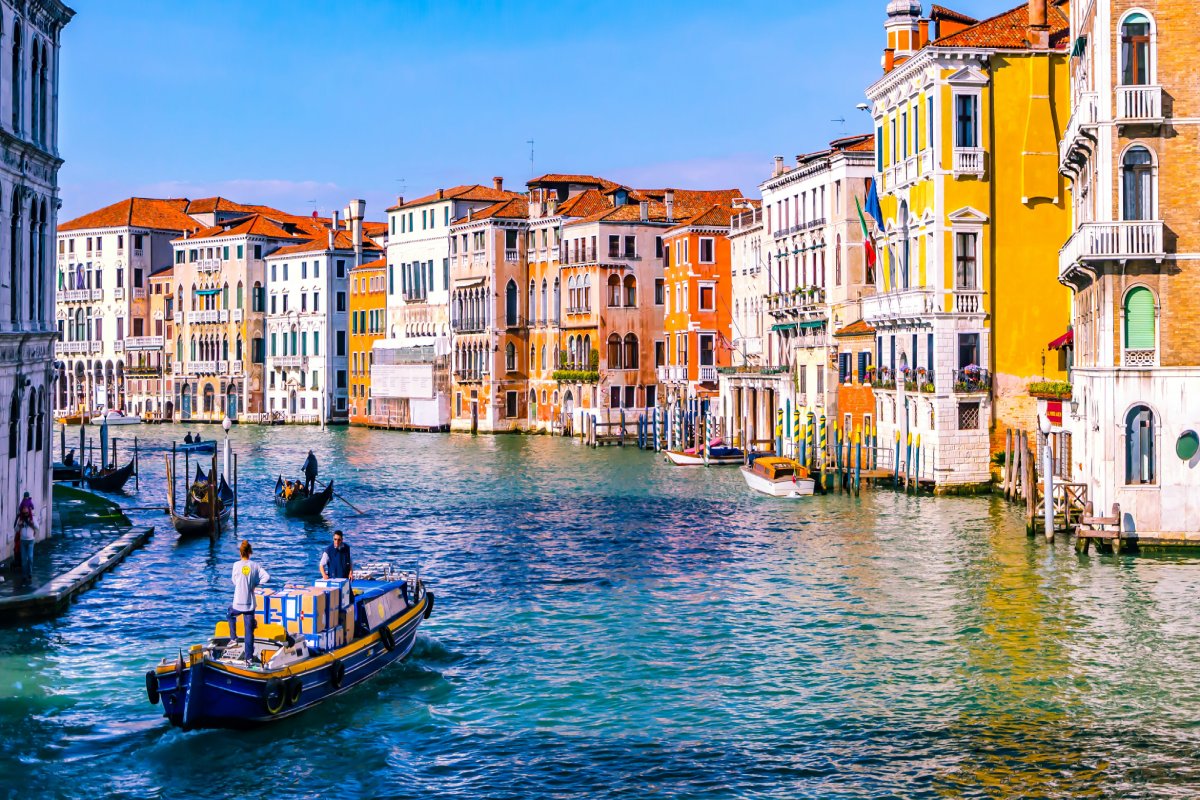The results of Venice’s tourist entry fee for day trippers are in. For a total of 29 days between April 25 and July 14, Venice mandated that day trippers pay a fee of 5 euros before entering the city. The system targets day trippers from nearby Italian regions.
Visitors who didn’t pay were fined between 50 euros and 300 euros. Additionally, they are required to pay 10 euros for the entry fee.
To enforce the rules, municipal workers have been placed at rail stations, bus terminals and other locations. Residents, commuters and overnight tourists were exempt from the fee but had to register on the program’s website.
In total, the system had over 3.6 million registrations.
1. Day Trip Tourism on Peak Days Decreased
Over 485,000 day trippers in total came to Venice during the 29 days. Day tripper volume never exceeded its 2023 levels on those days.
2. Venice Made More than $2.5 million in Fees
The government collected 2.4 million euros ($2.6 million). In its first year, the cost of running the pilot system actually exceeded the revenue collected, city councilor and deputy mayor Simone Venturini told Skift in a June interview.
The city intends to use the system to fund local maintenance and restoration. Venice is home to antiquated and fragile architecture and infrastructure.
3. Venice Plans to Expand the Program in 2025
Venice sees the trial as a success, and plans to make adjustments in 2025.
“It is possible that in 2025 we will calibrate the contribution cost upwards, on certain days of high influx, within the range that national law allows us, which goes from 3 to 10 euros,” a city spokesperson told Skift.
City officials have considered expanding the number of days for the program to 100 and raising the entry to $10, Venturini told Skift.
Entry Fee: One Pillar of Venice’s Tourism Restriction
The pilot entry free system is part of Venice’s overall approach toward managing overtourism. Venice and its surrounding region had over 13 million tourists in 2023, according to the Italian government.
Some of the city’s other policies include a cap on new hotels in the city center, building a terminal for cruise ship stops outside the city center and limiting group tour size to 25.
In September, the city is going to introduce new restrictions on short-term rentals.
Governments in Europe Combat Mass Tourism
Governments in Europe have been trying to reduce mass tourism. Amsterdam, for example, is relocating its cruise terminal from its city center and blocking new hotel development, deputy mayor Sofyan Mbarki told Skift in an interview in July.
In Barcelona, the mayor announced a ban on short-term rentals by 2029 and a new tax on cruise passengers.
Subscribe to Skift Pro to get unlimited access to stories like these
{{monthly_count}} of {{monthly_limit}} Free Stories Read
Subscribe NowAlready a member? Sign in here
Subscribe to Skift Pro to get unlimited access to stories like these
Your story count resets on {{monthly_reset}}
Already a member? Sign in here
Subscribe to Skift Pro to get unlimited access to stories like these
Already a member? Sign in here
